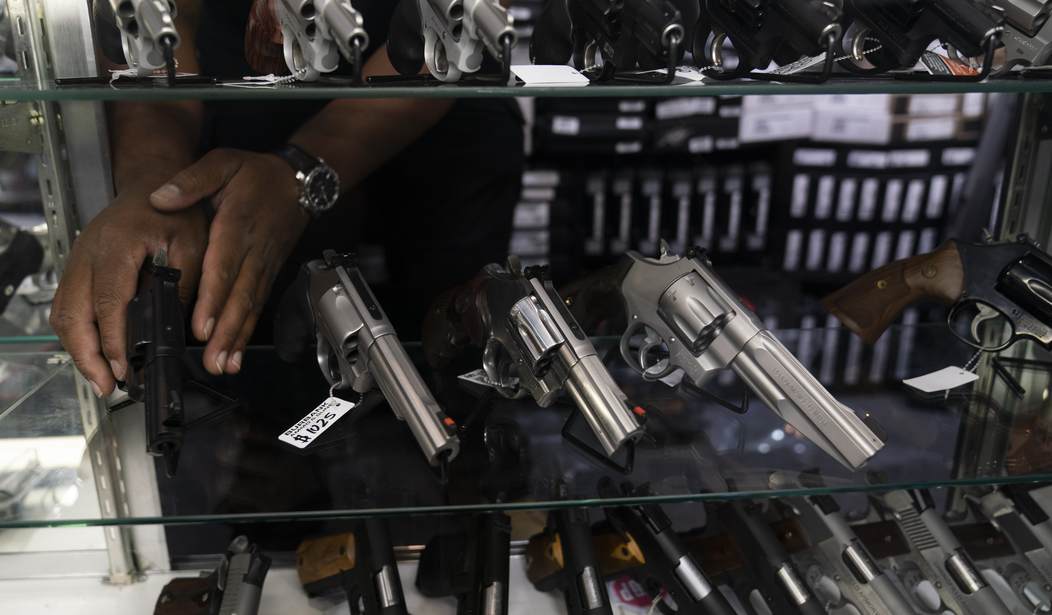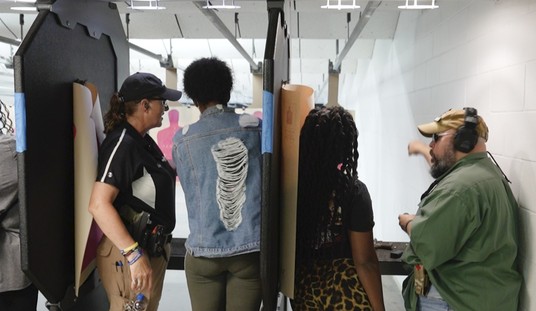One of the big problems we have in this day and age are felons getting guns. Bad guys with firearms can do bad things. We all know this, even if we figure not everyone who has a gun illegally is going to kill or even shoot another person.
The issue is that gun control is supposed to stop that.
In Maine, there’s been a lot of talk about anti-Second Amendment regulations. Despite being a pretty blue state, it’s also one with a long history of opposing gun control. Recently, an effort to pass some failed there.
Much of this push follows a mass shooting in the state, one that rattled a lot of people.
Yet one publication, the Bangor Daily News, decided to look at how felons actually get guns
Research and public records offer a limited glimpse into the ways restricted people are getting their guns.
One method is so-called straw purchasing, in which someone else buys the guns for a prohibited person. In a rare example of bipartisan gun control, Congress tightened the penalties for straw purchasing last year in the wake of the Uvalde, Texas, shooting.
Johnathan Nathans, an assistant U.S. attorney based in Maine, said that he’s anecdotally seen “a real rise” in straw purchasing in recent years, often connected to drug crime.
“You have people that are vulnerable, that don’t have a criminal history at all, and they are being asked by people, oftentime drug dealers, to go and purchase firearms for them,” Nathans said. “So they’re going in and purchasing one or two or more firearms, and then those firearms are quickly being handed over to a prohibited person.”
Court records offer some examples of this, such as a Massachusetts trafficker forgiving the drug debts of someone who bought seven guns in southern Maine, or a Brewer pawn shop worker falsifying records for 16 straw purchases.
Guns also can be acquired illegally by theft, borrowing or private purchase. That could be from a close acquaintance, the black market, classified ads or gun shows. Maine does not require background checks for private gun sales, and various proposals to enact them have been rejected by voters and lawmakers over the years.
A 2012 study of 253 people incarcerated for gun crimes found that about 40 percent were previously prohibited from having them. Those participants only occasionally got their guns from stores or pawn shops, and none reported using gun shows. Most were obtained from friends, family and dealers on the street — and were usually purchased or borrowed instead of stolen.
However, it should be noted that the “dealers on the street” typically were selling stolen guns. The person arrested didn’t steal them, but that’s not to say they weren’t stolen.
Now, with that said, it’s important to note that on just about everything else, what was presented isn’t unlikely what we already know to be true.
But let’s also address the idea of background checks for private sales. The idea that is seemingly presented here is that felons would be caught up if they were required.
The problem with that is that they already note that a lot of them get them from friends and family. In other words, they’re buying them from people who probably already know they’re prohibited from buying a firearm. That’s already a crime. You don’t need more laws.
However, I applaud them for acknowledging that much of the problem does come from illicit means like straw purchases or theft. That doesn’t get a lot of attention from the media.
Don’t get me wrong, there’s still an anti-gun bias here; a real feeling that the felons aren’t the problem, the lack of regulation is, but at least there’s some acknowledgment of what we actually know regarding how these felons get guns despite all the laws already in place.
It would almost be refreshing without the hints of desire for universal background checks.








Join the conversation as a VIP Member